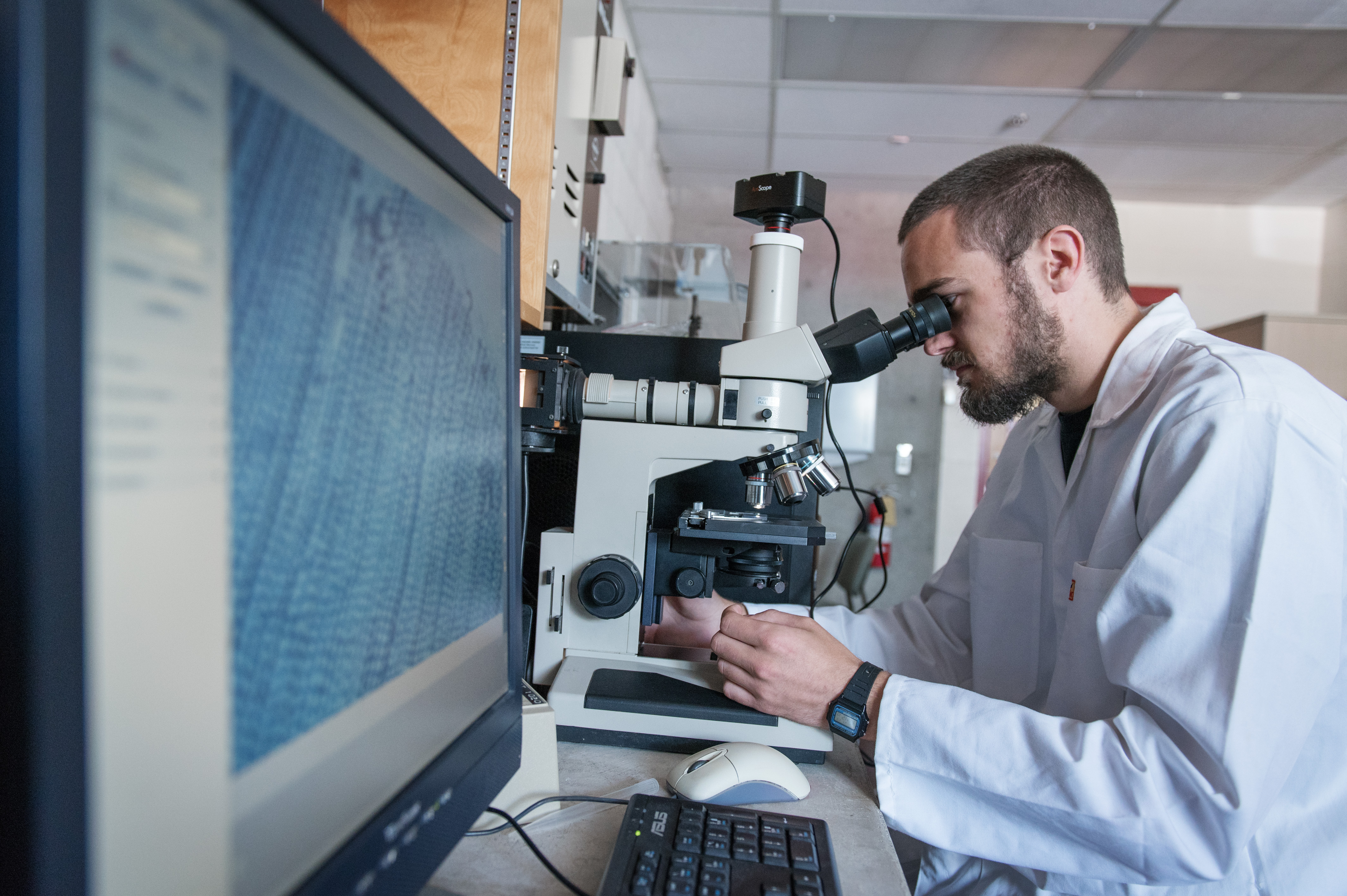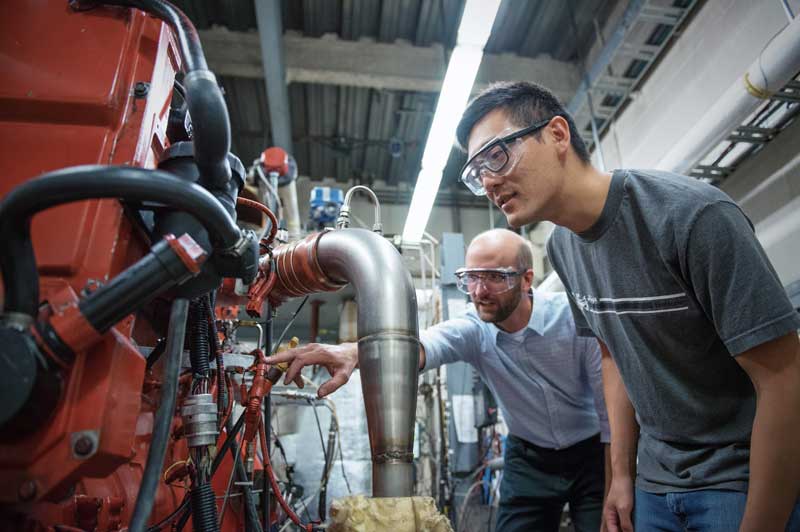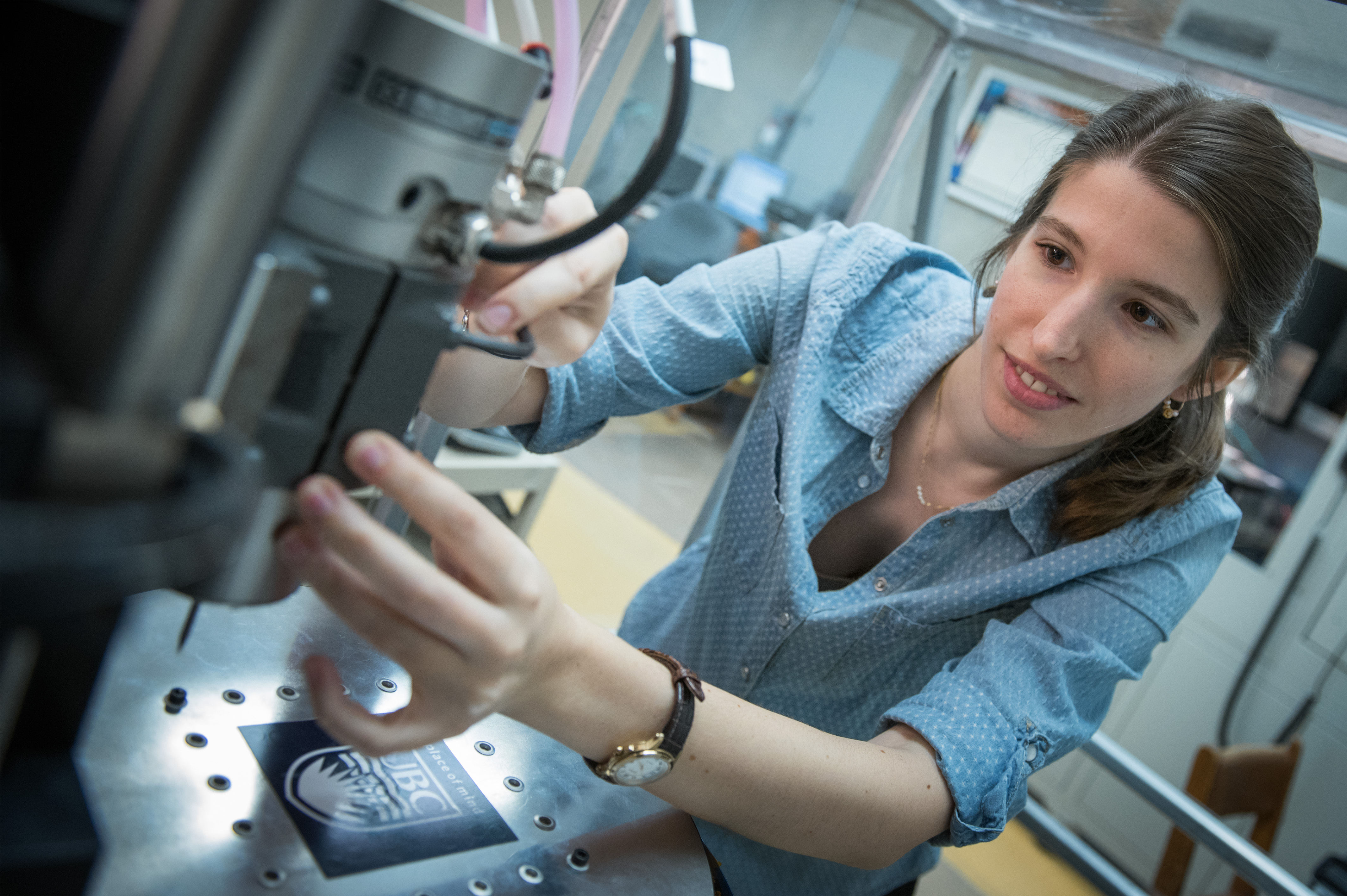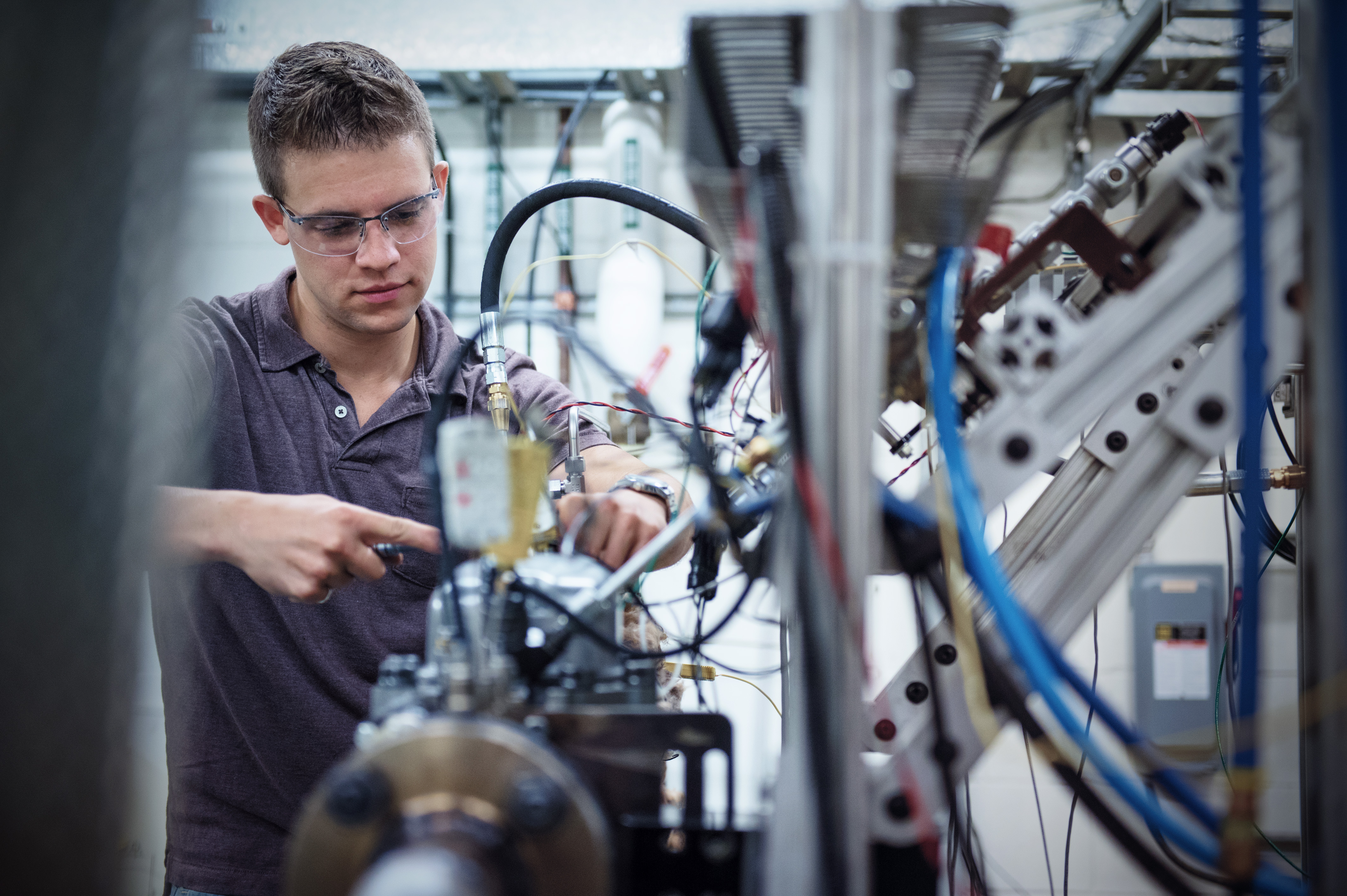Graduate Programs
See the program comparison chart for the quick details of each program, and find the full descriptions of each degree below for more details.
Jump to the details for your program of interest:
Master of Applied Science Doctor of Philosophy Master of Engineering Master of Engineering Leadership
Degree Comparison
| Master of Engineering (MEng) |
|---|
| Program Type: Professional |
| Duration: 12 months |
Degree Areas:
|
Program Components:
|
Eligibility for Financial Assistance:
|
| Co-op Program: May be eligible for a 4-month co-op work term. Details vary by program of study; see below for requirements. |
| Master of Engineering Leadership (MEL) |
|---|
| Program Type: Professional |
| Duration: 12 months |
Degree Areas:
|
Program Components:
|
Eligibility for Financial Assistance:
|
| Co-op Program: N/A |
| Master of Applied Science (MASc) |
|---|
| Program Type: Research |
| Duration: 24 months |
Research Areas:
|
Program Components:
|
Eligibility for Financial Assistance:
|
| Co-op Program: N/A |
| Doctor of Philosophy (PhD) |
|---|
| Program Type: Research |
| Duration: 48 months |
Research Areas:
|
Program Components:
|
Eligibility for Financial Assistance:
|
| Co-op Program: N/A |
Program Costs + Awards and Funding Opportunities
Research Programs
Our traditional research-based Master of Applied Science and Doctoral programs are for students who want to dig into a research topic under the supervision of one of our faculty experts.

Master of Applied Science (MASc)
Type: Research | Thesis-based | 24 months
The Master of Applied Science program is suitable for students wishing to pursue a traditional thesis-based Masters. All MASc courses are administered by Graduate and Postdoctoral Studies.
A MASc degree is expected to take around 24 months to complete. Your thesis is prepared with the guidance of your Research Supervisor, and typically falls under one of the Department’s Research Areas.

Doctor of Philosophy (PhD)
Type: Research | Dissertation-based | 48 months
The Doctor of Philosophy Program is for students who wish to pursue independent research. As with the MASc, the PhD Program is administered by Graduate and Postdoctoral Studies.
The expected duration of the PhD program is 4 years, though it varies depending on a student’s circumstances. Learn about our research
MASc & PhD Research Areas
MASc and PhD students will work closely with their supervisor on a research project, and can specialize in one of our areas:
- Applied Solid Mechanics
- Biomechanics and Medical Devices
- Computational Engineering
- Energy & Environment
- Fluid Mechanics
- Manufacturing Automation & Robotics
- Mechatronics & Instrumentation
- Naval Architecture & Marine Engineering
Our faculty supervisors research a wide range of interdisciplinary topics.
Professional Programs
Master of Engineering (MEng)
Type: Professional | Course-based | 12 months
The Master of Engineering is a course-based program designed for engineers wishing to upgrade their training. During this 12 month program students take a prescribed set of courses designed to advance their skills. MEng in Mechanical Engineering students may be eligible to enroll in the co-op program with the permission of program director and supervisor (if applicable).
Students interested in the MEng can apply to one of the following areas:

MEng in Mechanical Engineering
Expand your expertise in a mechanical engineering topic of your interest, and apply your knowledge in a design project.

MEng in Mechatronics Design
Combine the fields of mechanical and electrical engineering, and study the analysis, design and manufacture of electromechanical and mechatronic systems.

MEng in Naval Architecture & Marine Engineering
Deepen your engineering skills for ship design and other marine applications, and learn from industry mentors.
The Master of Engineering in Mechanical Engineering is aimed at students interested in pursuing an accelerated technical degree in an area not covered by our other MEng programs. The normal time for completion is 12 months, including a capstone project. Many of the MEng projects will be more translational in nature and may be combined with opportunities for internship or co-op with a partnering company or startup. This program is intended for academically strong students with well-articulated educational objectives.
- Co-op: Students in the MEng in Mechanical Engineering program may participate in the co-op program if they choose. They may complete a 4-month work term within their degree, and must return to complete their program. Applications to co-op must be done in August/September of the student’s start year.
The Master of Engineering in Mechatronics Design combines the fields of mechanical and electrical engineering in the study of integrated modelling, analysis, design and manufacture of electromechanical and mechatronic systems. These principles can be applied in the following industries: transportation; manufacturing and production engineering; biomedical and healthcare technologies; energy; aviation and aerospace; automated office and household technologies; and computer systems.
- Eligibility: Students must have a Bachelor of Applied Science or equivalent, as well as some prior education in mechatronics design, to be eligible for the Mechatronics Design MEng program.
- Co-op: MEng in Mechatronics Design may be eligible to participate in a 4-month co-op work term after completing their program requirements (all 30 credits). Applications to the co-op program must be done in August/September of the student’s start year.
Master of Engineering Leadership (MEL)
Type: Professional | Course-based | 12 months
The Master of Engineering Leadership is a one-year professional degree program for industry professionals who want to excel in their careers, broaden their technical perspectives and gain new business and leadership skills. Students undergo cross-disciplinary technical instruction and personal leadership development. Please see the Master of Engineering Leadership website and links below for admissions details and deadlines.
Master of Engineering Leadership Programs MEL Admission Details
The Mechanical Engineering department offers MEL degrees in the following areas:

MEL in Naval Architecture & Marine Engineering
The Master of Engineering Leadership in Naval Architecture and Marine Engineering (MEL NAME) is intended for engineers who are three to five years or more into their careers. This program combines the engineering and physics of ship design with broad business and leadership training. Students leave the program with the ability to manage complex shipbuilding design and procurement programs, and the qualifications to work in the field of ship project management.
- Eligibility: Students must have a Bachelor of Applied Science or equivalent, as well as 3 or more years of professional experience, to be eligible for the MEL NAME program

MEL in Clean Energy Engineering
The Master of Engineering Leadership in Clean Energy Engineering (MEL CEEN) is designed for engineers and environmental science graduates who want to make their sustainable vision a reality and advance their careers in the field of clean energy. The program offers leadership courses on project management, business and communication, while deepening students’ knowledge of sustainable energy systems, energy distribution networks, energy efficiency and energy policy.
- Eligibility: Students must have a Bachelor of Applied Science or equivalent, as well as 3 or more years of professional experience, to be eligible for the MEL CEEN program.